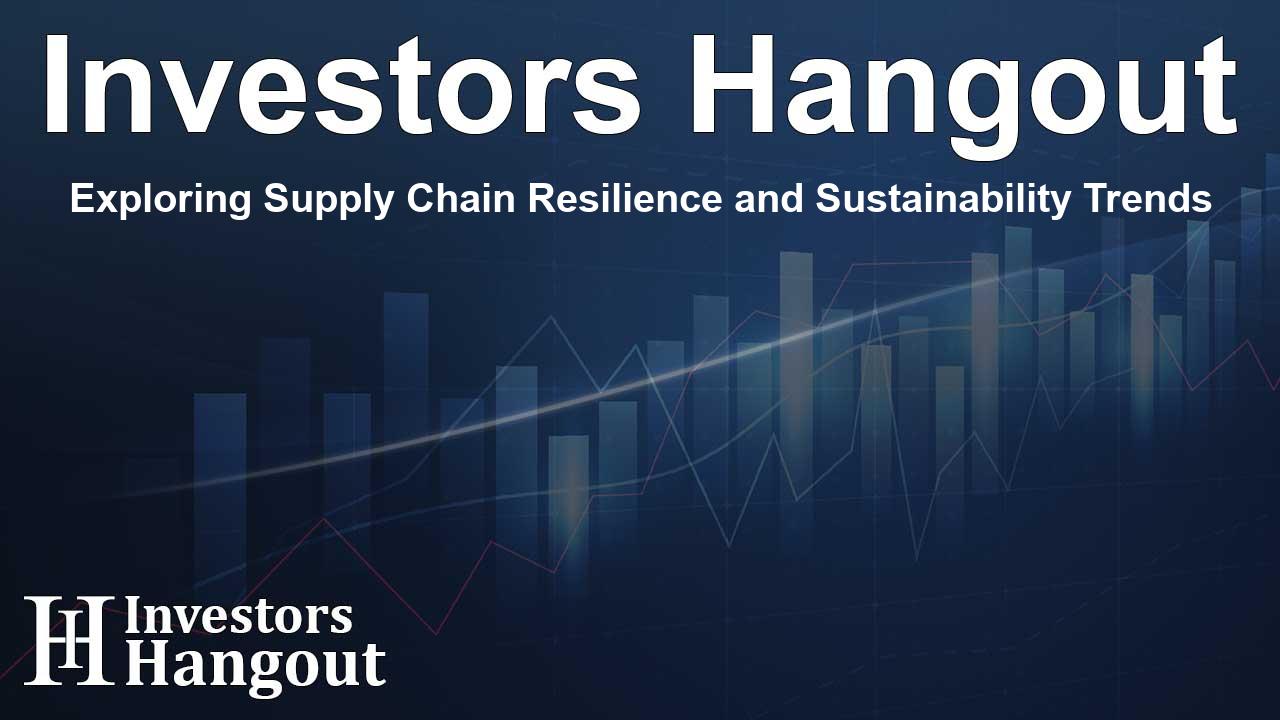Exploring Supply Chain Resilience and Sustainability Trends

Understanding Supply Chain Confidence and Management
Recent research has shed light on the growing confidence among supply chain professionals, indicating that a remarkable 64% of them feel highly confident, while 35% report moderate confidence in handling disruptions. However, this confidence doesn't always translate into effective management, as nearly 43% express challenges in maintaining visibility across their supply chains.
Key Findings from the Research
The study, titled "Powering Supply Chain Confidence: The Role of Data and Standardization," explores crucial elements that can enhance both the effectiveness and resilience of supply chains. Those with high confidence often have centralized systems to manage disruptions in real-time; 56% report that this strategy significantly improves their operations. Trust in the accuracy of data in these centralized systems can further enhance this effectiveness, with an impressive 68% agreeing on the importance of reliable data.
Automation and Agility in Operations
Full supply chain automation stands out as another key factor, with 72% of confident companies utilizing it to manage agility effectively. This capability enables them to adapt to fluctuations in consumer demand, which 51% of these businesses feel they handle well. Additionally, the implementation of GS1 Standards is noteworthy, with 77% believing that these standards empower them to respond adeptly to supply chain disruptions.
Technology and Sustainability Practices
The research indicates that companies employing real-time tracking technologies are 68% more likely to report enhanced visibility and improved inventory control, reiterating the significance of technology in modern supply chains. Despite 99% of all companies acknowledging the importance of sustainability, only about half have proactively integrated sustainable practices within their operations.
Focus Areas for Advancing Sustainability
For those advancing sustainability initiatives, attention is directed towards critical areas such as waste management and recycling programs, which 52% have adopted. Sustainable packaging practices follow closely, embraced by 48% of companies, alongside certifications and impact accounting, also at 48%. Furthermore, 45% acknowledge the importance of sourcing materials sustainably.
The Future of Supply Chain Strategies
Geopolitical tensions, alongside fluctuating demand and persistent disruptions, are compelling organizations to reevaluate and transform their supply chain strategies. As Bob Carpenter, president and CEO of GS1 US, aptly puts it, to stay competitive, businesses need to foster greater agility, innovation, and sustainability throughout their entire supply chain. Current success hinges on the ability to adapt in real-time while enhancing visibility and innovating operations, all with a responsible approach to sustainability.
About GS1 US
GS1 US is committed to helping companies optimize their supply chains and ensure trusted and safe experiences for consumers. As a not-for-profit organization known for its UPC barcode systems, GS1 creates a standardized language that facilitates the identification, capture, and sharing of data throughout physical and digital supply chains. With millions of businesses relying on its standards, GS1 continues to power commerce globally.
Frequently Asked Questions
What is the confidence level among supply chain professionals?
The research shows that 64% feel highly confident and 35% moderately confident in managing disruptions.
How does technology impact supply chain visibility?
Implementing real-time tracking technologies significantly enhances visibility and inventory control, increasing confidence in operations.
What percentage of companies prioritize sustainability?
While 99% acknowledge sustainability's importance, only about half have implemented specific practices.
What areas are companies focusing on for sustainability?
Key focus areas include waste management, sustainable packaging, and sourcing materials responsibly.
How does GS1 US contribute to supply chain management?
GS1 US establishes data standards that facilitate trust and efficiency in supply chains globally.
About The Author
Contact Owen Jenkins privately here. Or send an email with ATTN: Owen Jenkins as the subject to contact@investorshangout.com.
About Investors Hangout
Investors Hangout is a leading online stock forum for financial discussion and learning, offering a wide range of free tools and resources. It draws in traders of all levels, who exchange market knowledge, investigate trading tactics, and keep an eye on industry developments in real time. Featuring financial articles, stock message boards, quotes, charts, company profiles, and live news updates. Through cooperative learning and a wealth of informational resources, it helps users from novices creating their first portfolios to experts honing their techniques. Join Investors Hangout today: https://investorshangout.com/
The content of this article is based on factual, publicly available information and does not represent legal, financial, or investment advice. Investors Hangout does not offer financial advice, and the author is not a licensed financial advisor. Consult a qualified advisor before making any financial or investment decisions based on this article. This article should not be considered advice to purchase, sell, or hold any securities or other investments. If any of the material provided here is inaccurate, please contact us for corrections.
